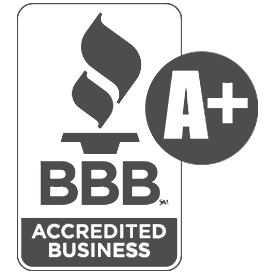How Refinancing Your Mortgage Can Impact Property Taxes
Refinancing a mortgage is a popular way to reduce interest rates, lower monthly payments, or access your home’s equity. However, many homeowners wonder whether refinancing could impact their property taxes. While refinancing itself doesn’t directly change your tax bill, certain aspects of the process could influence it indirectly. Here’s what you need to know about how refinancing may interact with your property taxes.
1. What Are Property Taxes and How Are They Calculated?
Property taxes are determined by your local government and are based on the assessed value of your home. This assessed value is a percentage of your property’s market value and is multiplied by your area’s tax rate to calculate your annual tax bill.
Key Factors in Property Taxes:
-
Assessed Value: A percentage of your home’s estimated market value, as determined by your local assessor.
-
Market Value Changes: Significant changes to your home’s market value can prompt reassessments.
-
Local Tax Rates: The tax rate is set by your municipality or county and can vary widely depending on your location.
2. Refinancing: Does It Trigger a Property Tax Reassessment?
In most cases, refinancing your mortgage does not trigger a reassessment. Local governments generally reassess properties based on the following events:
-
Change in Ownership: When a home is sold, the sale price often becomes the new assessed value.
-
Periodic Reassessments: Some areas reassess properties at regular intervals, such as annually or every few years.
-
Permitted Renovations: Major home improvements or expansions that require permits can prompt a reassessment.
Since refinancing doesn’t involve transferring ownership, it usually doesn’t lead to an automatic reassessment.
3. When Refinancing Could Indirectly Affect Property Taxes
While refinancing itself doesn’t change your property taxes, there are situations where it could have an indirect impact:
Higher Appraised Value During Refinancing
Most refinancing processes require a home appraisal to determine the current market value of your property. If the appraisal reflects a significantly higher value, it might catch the attention of your local tax assessor, especially in areas with less frequent reassessments.
Example:
If your home was previously assessed at $300,000 but the appraisal values it at $400,000, this difference could trigger a reassessment during the next scheduled review.
Cash-Out Refinancing and Home Improvements
A cash-out refinance allows you to borrow against your home’s equity to fund renovations or other expenses. If you use these funds to make major improvements—such as adding a new room, upgrading a kitchen, or building a deck—it can increase your property’s value. These upgrades are often reported to local assessors, potentially raising your home’s assessed value.
Tip: Check local regulations to understand which improvements might prompt a reassessment.
4. How to Minimize Potential Property Tax Increases
Here are steps to take if you’re concerned about refinancing affecting your property taxes:
Monitor Your Home’s Current Value
Compare your home’s assessed value with its market value. If there’s a significant gap, a reassessment may already be on the horizon, even if you don’t refinance.
Plan Renovations Strategically
When using cash-out refinancing, focus on improvements that add value to your quality of life without significantly increasing your home’s taxable value. For example, energy-efficient upgrades may qualify for tax credits while minimally affecting assessments.
Speak with Local Tax Authorities
Contact your local assessor’s office to clarify whether refinancing-related appraisals are shared with their office and how they might use this information.
Keep Refinancing Focused on Loan Terms
Opt for a rate-and-term refinance to adjust your loan terms or lower your interest rate without drawing attention to your home’s market value.
5. Refinancing Scenarios and Their Impact on Property Taxes
Rate-and-Term Refinance
This type of refinancing adjusts your loan’s interest rate or term without accessing additional equity. It typically has no impact on your property taxes.
Cash-Out Refinance
By borrowing against your home’s equity, this option can lead to increased property taxes if the funds are used for major renovations or additions.
Streamline Refinance
Available for FHA, VA, or USDA loans, a streamline refinance usually skips the appraisal process, making it highly unlikely to affect your property taxes.
6. When Refinancing Might Be Worth It Despite Potential Tax Increases
Even if refinancing indirectly leads to higher property taxes, the overall savings or benefits can outweigh the additional cost. For instance:
-
Lower Monthly Payments: A reduced interest rate could save you thousands over the life of the loan, offsetting a modest tax increase.
-
Home Value Improvements: Renovations funded through refinancing could increase your home’s market value and future resale potential.
-
Debt Consolidation: Using cash-out refinancing to consolidate high-interest debt can improve your financial stability.
Conclusion
While refinancing your mortgage generally doesn’t directly affect your property taxes, related factors like home appraisals and improvements can have an indirect impact. Understanding how these elements interact can help you make informed decisions and plan for potential changes. Whether you’re lowering your interest rate, accessing equity, or adjusting your loan terms, refinancing can be a powerful financial tool—just be mindful of its possible implications for your property taxes.




